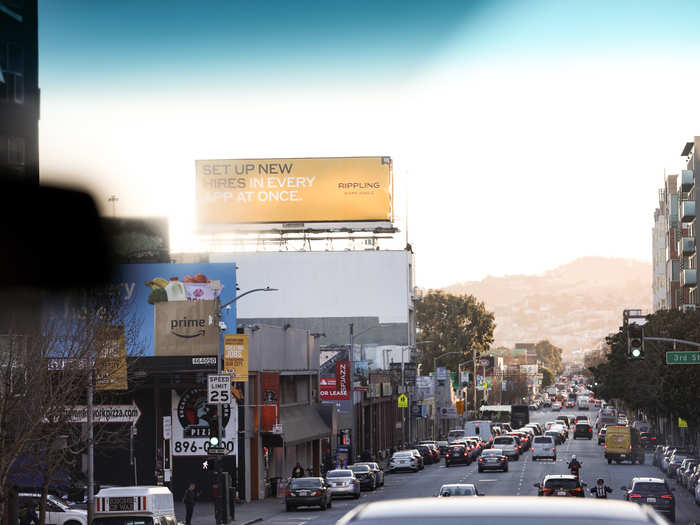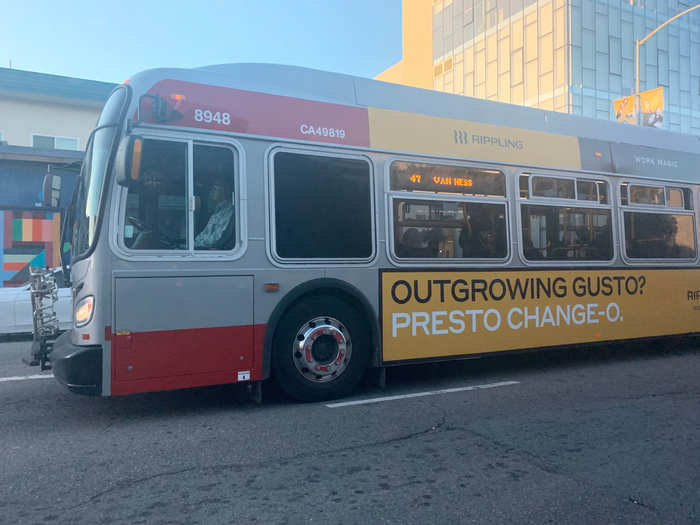- Home
- slideshows
- miscellaneous
- 2 Y Combinator-backed startups are feuding over an ad campaign, and it's yet another example of how San Francisco startups compete in the city's ultra-crowded tech market
2 Y Combinator-backed startups are feuding over an ad campaign, and it's yet another example of how San Francisco startups compete in the city's ultra-crowded tech market
In Gusto's cease-and-desist letter, it states that it "hopes Rippling can find a creative, lawful way" to continue advertising.

The billboard operator, not wanting to be caught in the middle of a legal hassle, took down the billboard last week. Rippling's four other billboards, void of any jab at a competitor, are still on display.

And now Rippling's bus ad vendor Intersection is doing the same after also receiving Gusto's cease-and-desist letter, an Intersection spokesperson told Business Insider, meaning a legal issue likely won't ensue since Gusto's requests were met.
To be clear, Rippling's method of marketing is what is called comparative advertising, which is typically legal as long as what is stated is accurate.

Other high-profile examples are Apple's Mac vs. PC campaign or Bud Light attacking Coors Light and Miller Light for using corn syrup in its light beers.
Gusto's reasoning, according to its cease-and-desist letter sent to Rippling which it shared with Business Insider, is that Rippling's comparative ad is, in fact, factually inaccurate in its implication that a company can outgrow Gusto's software and services, despite the fact that Gusto itself outgrew its own systems.
According to AdAge, these kinds of comparative ads appeal to consumers when it's the underdog going after the "Goliath" of the two, even though Bud Light and other brands have broken this formula in the past.
Gusto, previously known as ZenPayroll, achieved unicorn status in 2015 when a round of funding pushed it over the $1 billion valuation mark. It was valued at $3.8 billion in July 2019, as Business Insider's Ben Pimentel reported, and employs 530 workers across its San Francisco and Denver offices.
Rippling's workforce sits at about 200 and has raised $52 million, according to Crunchbase. It was valued at $270 million in April 2019.
Gusto has avoided the oftentimes inescapably fratty company culture that's common in the Valley, as Business Insider's Melia Russell reported in 2018. The company operates out of an old machine warehouse in San Francisco's Dogpatch neighborhood, with its employees scuffling around barefoot or in socks or slippers thanks to a shoeless office policy.
Rippling is the brainchild of CEO Parker Conrad, who was ousted from HR software company Zenefits in 2016 when it was accused of selling insurance without a license by state and federal regulators. Conrad agreed to a $500,000 settlement with the SEC and did not admit or deny that the company violated federal securities laws.
Popular Right Now
Advertisement